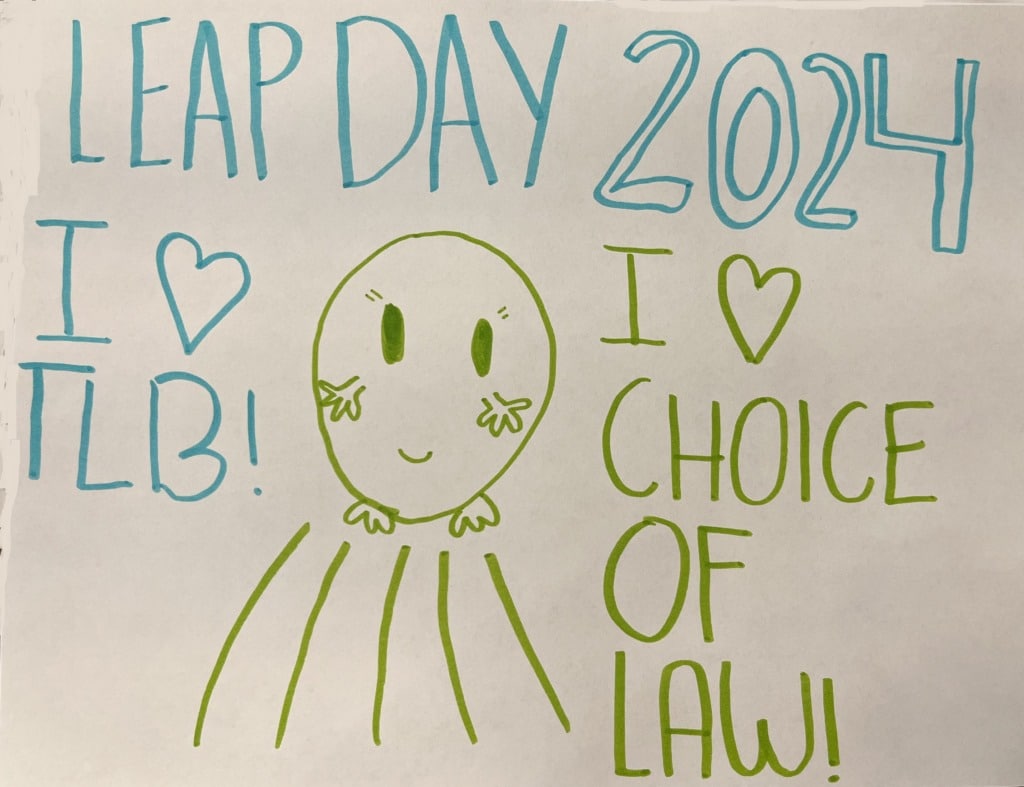Second Circuit Allows Securities Claims Against Crypto-Asset Exchange
In Morrison v. National Australia Bank (2010), the U.S. Supreme Court applied the presumption against extraterritoriality to § 10(b) of the Securities Exchange Act, holding that this provision applies only to transactions in the United States. Morrison’s transactional test has proven difficult to apply to unlisted securities that do not trade on an exchange. In…
Continue ReadingAbitron on Remand
Last year, in Abitron Austria GmbH v. Hetronic International, Inc., the Supreme Court held that the federal trademark statute—known as the Lanham Act—applies only to domestic conduct infringing U.S. trademarks. A group of Austrian and German companies collectively known as “Abitron” placed U.S.-protected trademarks owned by a U.S. company, Hetronic, on products made in Europe. Some of…
Continue ReadingFederal Circuit Reconsiders Extraterritorial Patent Damages
The Federal Circuit’s recent decision in Brumfield v. IBG LLC suggests that U.S. patent holders may be able to obtain damages for foreign activities that flow from domestic acts of infringement proscribed by 35 U.S.C. § 271(a). This is a new development: as the Federal Circuit explained, the Supreme Court’s extraterritoriality analysis in WesternGeco LLC…
Continue ReadingDistrict Court Permits Clean Air Act Action Against Canadian Company
The presumption against extraterritoriality is the principal tool that U.S. courts use to determine the reach of federal statutes. Last year, in Abitron Austria GmbH v. Hetronic International, Inc. (2023), the U.S. Supreme modified the presumption by requiring conduct relevant to a provision’s focus to occur in the United States in order for the application…
Continue ReadingThe U.S. Takes the Fight Against Bribery to Foreign Officials
American companies, U.S. issuers, and persons in the United States have long been barred from bribing foreign officials under the Foreign Corrupt Practices Act (FCPA). But until December 2023, no U.S. law directly penalized those foreign officials for soliciting or taking bribes. With the enactment of the Foreign Extortion Prevention Act (FEPA), buried deep within…
Continue ReadingAnother Victory for Mexico in Guns Litigation
Still flush with success from its win at the First Circuit against U.S. gun manufacturers, Mexico has scored a new victory in federal court—this time, against U.S. gun dealers. In Estados Unidos Mexicanos v. Diamondback Shooting Sports, Inc., the U.S. District Court for the District of Arizona (Judge Rosemary Márquez) ruled that Mexico could move…
Continue ReadingTransnational Corporate Accountability Through American Corporate Law
To those who view the Alien Tort Statute (ATS) as a beacon of American justice for foreign victims of corporate misconduct, the landscape looks bleak. In the latest ATS case decided in 2021, the Supreme Court held in Nestlé USA, Inc. v. Doe that plaintiffs, who were allegedly trafficked as children to engage in slave…
Continue ReadingD.C. Circuit Defines “Venture” Under the TVPRA
On March 5, 2024, the D.C. Circuit issued its long-awaited opinion in Doe v. Apple, a suit against U.S. tech companies seeking to hold them liable under the Trafficking Victims Protection Reauthorization Act (TVPRA) for forced labor and human trafficking used to mine cobalt in the Democratic Republic of the Congo (DRC). (Disclosure: I joined…
Continue ReadingChoice of Law in the American Courts in 2023
The thirty-seventh annual survey on choice of law in the American courts is now available on SSRN. The survey covers significant cases decided in 2023 on choice of law, party autonomy, extraterritoriality, international human rights, foreign sovereign immunity, adjudicative jurisdiction, and the recognition and enforcement of foreign judgments. So, on this leap day, we thought…
Continue ReadingMexico’s Lawsuit against U.S. Gun Makers Opens a New Front in the War Against Firearm Industry Immunity
In 2021, the Government of Mexico filed a lawsuit against U.S. firearm manufacturers demanding $10 billion in damages for the industry’s role in facilitating illegal cross-border gun trafficking and seeking injunctive relief to change the way gun makers do business. Mexico’s lawsuit had to confront the industry’s notorious federal immunity shield—the Protection of Lawful Commerce…
Continue Reading





